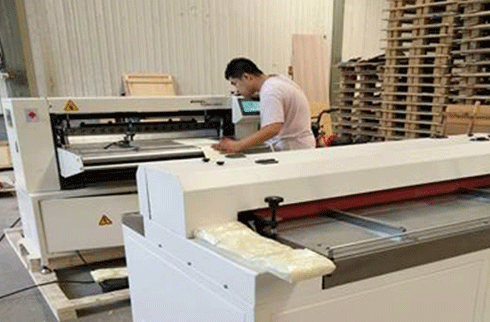Nov . 06, 2024 13:32 Back to list
Hydraulic Pilot Oil Filter for Enhanced System Performance and Longevity
Understanding Hydraulic Pilot Oil Filters Essential Components for Optimal System Performance
In hydraulic systems, efficient operation hinges on the cleanliness and purity of the hydraulic fluid. This is where hydraulic pilot oil filters play a critical role. These specialized filters are designed to remove contaminants from hydraulic fluid, ensuring the smooth functioning of hydraulic machinery and enhancing the lifespan of components.
What is a Hydraulic Pilot Oil Filter?
A hydraulic pilot oil filter is an integral component of hydraulic systems, primarily found in applications where precise control and minimal contamination are paramount. Unlike standard hydraulic filters, pilot oil filters are designed to handle low flow rates and are strategically positioned in hydraulic circuits, often at the pilot control valves. Their main purpose is to filter the hydraulic fluid that directly influences the operation of valves and actuators, which are vital for system control.
The Importance of Contaminant Removal
Hydraulic systems are susceptible to various types of contaminants, including dirt, metal shavings, and water, which can lead to operational inefficiencies or even catastrophic failures. Contaminants can cause wear and tear on components, resulting in malfunctions or decreased performance. The primary function of hydraulic pilot oil filters is to capture these harmful particles before they can compromise the system’s integrity. By ensuring that only clean fluid reaches critical components, these filters help maintain the system's efficiency and reliability.
Types of Hydraulic Pilot Oil Filters
There are several types of hydraulic pilot oil filters, each with unique features and applications. Some of the most common types include
hydraulic pilot oil filter product

1. In-line Filters These filters are installed directly in the hydraulic line and can be easily replaced or cleaned. They are effective for filtering out larger particles but may need to be changed frequently depending on the operating environment.
2. Spin-on Filters This type resembles an oil filter found in many vehicles and is favored for its ease of replacement. They provide excellent filtration capabilities and can handle a significant volume of contaminants.
3. High-Pressure Filters Designed to withstand higher pressures, these filters are used in more demanding applications where the risk of contamination is significantly increased.
4. Magnetic Filters Utilizing magnetic properties, these filters attract and trap metal particles, providing an additional layer of protection for hydraulic systems.
Maintenance and Replacement
Regular maintenance of hydraulic pilot oil filters is essential for optimal system performance. Depending on the system's operating conditions and the level of contaminants, filters may need to be inspected and replaced periodically. Neglecting filter maintenance can lead to reduced efficiency, increased wear on system components, and costly downtime.
Conclusion
Hydraulic pilot oil filters are crucial for ensuring the reliability and longevity of hydraulic systems. By effectively removing contaminants from the hydraulic fluid, these filters contribute to smoother operations, reduced wear, and enhanced component life. Understanding the different types, roles, and maintenance needs of hydraulic pilot oil filters allows operators and maintenance teams to safeguard their hydraulic systems against the detrimental effects of contamination, ensuring maximum efficiency and performance. Investing in high-quality hydraulic pilot oil filters and maintaining them diligently is a wise decision for anyone relying on hydraulic technology in their operations.
-
Active Carbon Air Filter for Air Purifier – Superior Odor & Allergen Removal
NewsJul.24,2025
-
High-Efficiency Active Carbon Air Filter for Air Purifier | Odor & Allergen Removal
NewsJul.23,2025
-
Active Carbon Air Filter for Air Purifier – High Efficiency Filtration Solution
NewsJul.22,2025
-
Durable Sintered Porous Metal Filter Tube Cup & Machines
NewsJul.22,2025
-
Effective Active Carbon Air Filter for Purifiers | Eliminate Odors
NewsJul.21,2025
-
PLJT-250-25 Full-auto Turntable Clipping Machine | Efficient Automation
NewsJul.20,2025
